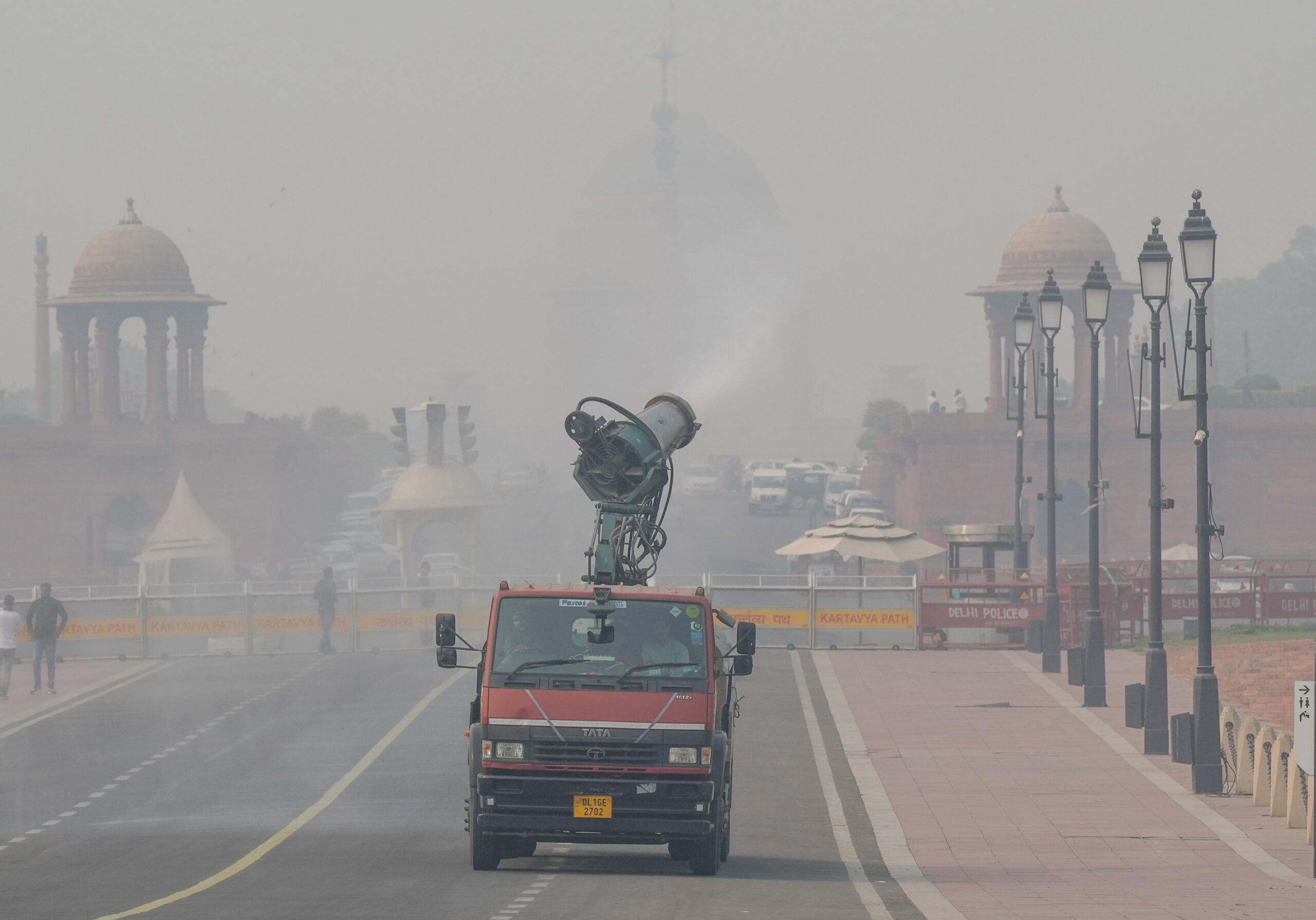- Saturday, April 19, 2025
The restrictions on physical classes of schools and colleges in Delhi were imposed recently due to severe air pollution

By: Shajil Kumar
THE SUPREME COURT on Monday asked the Commission for Air Quality Management (CAQM) in the national capital region and adjoining areas to consider restarting physical classes in schools and colleges, noting students were being deprived of mid-day meals and lacked wherewithal to attend virtual classes.
The restrictions on physical classes of schools and colleges were imposed recently due to severe air pollution.
A bench of Justices Abhay S Oka and Augustine George Masih further ordered the CAQM to initiate action against the officials of Delhi government and Delhi police for a “serious lapse” on their part in the strict implementation of GRAP-IV measures.
“It is apparent that the authorities mentioned in GRAP-IV clauses 1, 2 and 3 have made no earnest effort to implement action under clauses 1 to 3. Some police teams were deputed at few entry points that also without any specific instructions. (Court) commissioners have noted that police were only deployed as on November 23 and thus a serious lapse on part of authorities. We, therefore, direct commission to immediately initiate action under Section 14 of CAQM Act 2021,” the bench underscored.
A large number of students, it noted, did not have air purifiers at home therefore there is no difference between children at home and those attending schools.
“The CAQM is expected to take a decision during the course of the day or latest by tomorrow morning so that it can be implemented from Wednesday,” the bench said.
Curbs to continue
The top court, however, refused to relax the anti-pollution GRAP-4 restrictions in Delhi-NCR for now and said unless it was satisfied that there was a consistent downward trend in AQI levels, it cannot order curbs to be eased to GRAP-3 or GRAP-2.
Noting several sections of society, especially labourers and daily wagers, were adversely affected due to GRAP-4, the bench directed the state governments, where construction has been banned, to use funds collected as labour cess to provide subsistence to them.
“The commission has all the powers under Section 12(1) of the CAQM Act 2021 to issue directions to various authorities to take several measures to ensure that persons in the category of labour, daily workers, etc., do not suffer,” the bench said.
In its order, the bench said the 13 apex court lawyers, appointed as court commissioners to conduct inspection at entry points, would continue to visit areas and submit reports to the court.
Mid-day meals
The order was passed after senior advocate Menaka Guruswamy, appearing for a group of parents, submitted lakhs of students depended on mid-day meals but had been deprived of food owing to closure of schools.
She argued many students did not have air purifiers at home and questioned the composition of members of CAQM while claiming there was no member from the education sector.
Senior advocate Gopal Sankaranarayanan opposed the relaxation of measures and said the air quality inside homes was better than the outside.
At the outset, the apex court asked Additional Solicitor General Aishwarya Bhati, representing the Centre, if there was any written order directing police to station permanently at the checkpoints.
The ASG said the police personnel were deployed at 23 major checkpoints.
Bhati submitted a chart showing that AQI level in Delhi from November 20 to November 24 revealing the air quality index between ranges 318 and 419.
Senior advocate and amicus curiae Aparajita Singh said the police personnel at several check posts were deployed after court’s intervention and there was no clarity on directions.
The matter will be heard on November 28.
The apex court is seized of the matter related to air pollution in the Delhi-NCR.
GRAP-4 implementation
On November 18, the top court directed all Delhi-NCR states to immediately set up teams to strictly enforce anti-pollution GRAP-4 (Graded Response Action Plan) restrictions, making it clear that the curbs would continue till further orders.
GRAP-4 restrictions specifically relate to restricting entry of trucks carrying non-essential goods into the national capital.
The top court previously flagged the Delhi government’s failure in enforcing anti-pollution GRAP-4 restrictions relating to entry of trucks in the national capital and directed immediate setting up of check posts at 113 entry points.
Taking note of a marginal decline in the AQI level and adverse impacts of stringent curbs, the bench wanted to consider on Monday whether or not to ease the GRAP-4 restrictions in Delhi-NCR.
The bench had appointed court commissioners to visit the entry points to ascertain the implementation of curbs and Delhi police was called on to facilitate the inspection.
First implemented in 2017, the GRAP was a set of anti-air pollution measures followed in the capital and its vicinity according to the severity of the situation.
It classifies the air quality in the Delhi-NCR under four different stage — Stage 1 “poor” (AQI 201-300), Stage 2 “very poor” (AQI 301-400), Stage 3 “severe” (AQI 401-450) and Stage 4 “severe plus” (AQI above 450). (PTI)